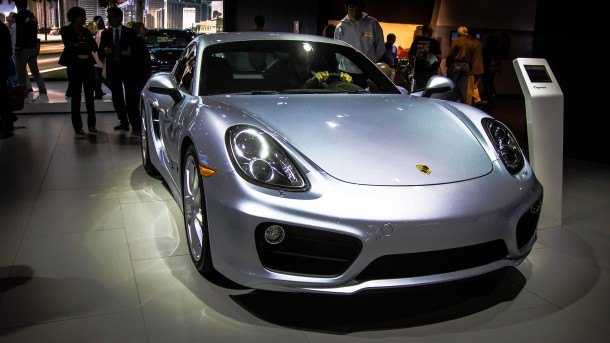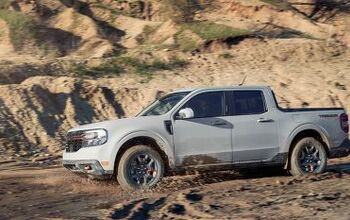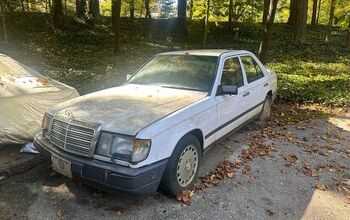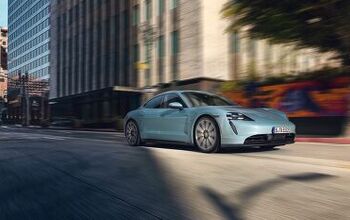Wait a Second Before You Invest Any More Energy in J.D. Power

There’s a considerable need for independent research and analysis, especially when it comes to cars.
But I have something to tell you about J.D. Power and Associate’s annual Automotive Performance, Execution and Layout study: it’s remarkably flawed.
The annual survey — alongside most other annual surveys — serves as a stump from which automakers proudly proclaim, “We’re the best, see? These guys just said so.”
But the APEAL survey, alongside J.D. Power and Associate’s Initial Quality Survey, give a distorted glimpse at the reality of buying a car.
They have no perception of cost. And that’s a big, big problem.
If you could afford a new Porsche, how satisfied with that purchase will you be in 90 days, when seemingly nothing expensive has gone wrong? What about 4 years later when warranties start to wane, and regular maintenance includes parts like a notoriously fussy internal oil separator that runs $2,000 to fix? Rear calipers that run $3,000? Or a $523.50 oil change? That Porsche you purchased may not be all that appealing anymore, I’m guessing, regardless of the awards J.D. Power can heap upon the company.
(Even further, I’m guessing the buyer who can drop $100,000 on a sports car is the type of buyer that can ditch that car for another sports car in three years and report that they’re pleased as punch again with the purchase.)
Meanwhile, if your bought-on-a-budget Toyota Corolla lugged your soul-crushing commute to work at 7 a.m., how stoked are you on that purchase 90 days — or even 90 minutes — after walking off the lot? I bought a new toaster last week and I wasn’t jazzed about it before I checked out at the register.
There needs to be a dose of reality when viewing these surveys. Mercedes-Benz, Audi, Jaguar and Land Rover all topped the list of initial appeal, but also topped Forbes’ list of most expensive cars to fix.
It makes sense. Really expensive cars are really nice. Really nice, expensive cars are also really complicated. I know, because I drive them all the time. An S-Class is more appealing than a Toyota Yaris because Mercedes-Benz makes really nice cars that cost a lot of money.
To say that Porsches have more appeal than Subarus is a no brainer; I don’t need 77 attributes with a verified score out of 1,000 to say that a big house with a rollercoaster looks better than a small house with a leaking basement. But I can only afford one of those.
But I do need a study that reliably and logically presents their ownership, maintenance, resale proportional to budget. Average MSRP and cost of ownership don’t factor into the J.D. Power survey.
That’s not to say Porsche, Mercedes-Benz, Jaguar or Audi make bad cars. J.D. Power just makes a narrow study that’s contorted way beyond its intent or measure.

More by Aaron Cole
Latest Car Reviews
Read moreLatest Product Reviews
Read moreRecent Comments
- Lorenzo Massachusetts - with the start/finish line at the tip of Cape Cod.
- RHD Welcome to TTAH/K, also known as TTAUC (The truth about used cars). There is a hell of a lot of interesting auto news that does not make it to this website.
- Jkross22 EV makers are hosed. How much bigger is the EV market right now than it already is? Tesla is holding all the cards... existing customer base, no dealers to contend with, largest EV fleet and the only one with a reliable (although more crowded) charging network when you're on the road. They're also the most agile with pricing. I have no idea what BMW, Audi, H/K and Merc are thinking and their sales reflect that. Tesla isn't for me, but I see the appeal. They are the EV for people who really just want a Tesla, which is most EV customers. Rivian and Polestar and Lucid are all in trouble. They'll likely have to be acquired to survive. They probably know it too.
- Lorenzo The Renaissance Center was spearheaded by Henry Ford II to revitalize the Detroit waterfront. The round towers were a huge mistake, with inefficient floorplans. The space is largely unusable, and rental agents were having trouble renting it out.GM didn't know that, or do research, when they bought it. They just wanted to steal thunder from Ford by making it their new headquarters. Since they now own it, GM will need to tear down the "silver silos" as un-rentable, and take a financial bath.Somewhere, the ghost of Alfred P. Sloan is weeping.
- MrIcky I live in a desert- you can run sand in anything if you drop enough pressure. The bigger issue is cutting your sidewalls on sharp rocks. Im running 35x11.5r17 nittos, they're fine. I wouldn't mind trying the 255/85r17 Mickey Thompsons next time around, maybe the Toyo AT3s since they're 3peak. I like 'em skinny.

































Comments
Join the conversation
The more you spend, and the smarter you think you are, the more likely you are to answer survey questions to validate your expenditure and self-perception. "I made a great decision and spent my money wisely!"
"You’re all hot and bothered about something that you know nothing about." Wouldn't be the first time. Or maybe that's your way of saying I win? ;) But if you're talking about testing being the know-nothing thing, I'm making a pretty big-picture point here. If someone pays $40,000 for a Pilot with, among other things, Honda Sensing safety features, are they going to have as much underlying/subconscious/you-name-it incentive to answer positively as someone who paid twice as much for essentially the same vehicle? And if it's simply a laundry list and the vehicles that have the most checked boxes wins, what's the point of a survey since you seem to be saying the best equipped vehicle will win? It's like when you read "$30 million study determines that men like breasts"....